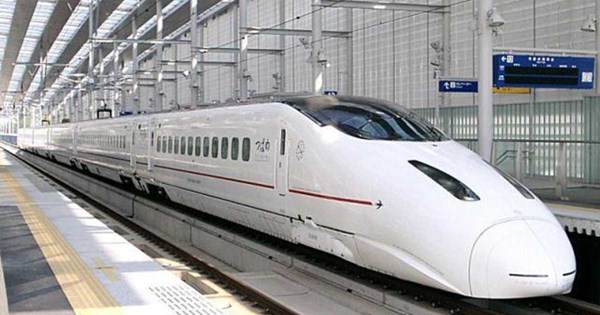China declares Silk Road through Russia unprofitable
The project to create a Eurasian high-speed railway line from Beijing through Moscow to Berlin, which the Russian government planned to insert into China’s “New Silk Road” to the EU, is unprofitable.
This was the conclusion reached by China Railway Eryuan Engineering Group (CREEC) after an analysis of the financial and technical conditions of the project.
As RBC reports, citing a source in the government and in Russian Railways, the company presented its assessment to the Russian-Chinese work group, which will now have to decide on the way forward.
CREEC estimates that the 9,500 km line, which would stretch from China through Kazakhstan, Russia, Belarus and Poland to Germany, would have a total cost of 9.8 trillion rubles. This is 40% higher than the Russian estimates, which put it at 7 trillion rubles.
The Russian stretch of the line would be the most expensive, accounting for almost half of the project.
In order to pay off the line, the interest rate on the loans would have to be virtually 0%, according to the calculations by the Chinese company: even then it would take 27 years to pay off, since the internal rate of return is 2.88%.
Based on the current project parameters, assuming that 60% of the funds came from loans, the project would never pay itself off. In its calculations, CREEC put the interest rate at 5.75% per annum, which is almost half as low as the market conditions for business in Russia.
The project would have to be paid for with taxpayers’ money, according to the Chinese assessment. “Each country would need government support, and to take complex measures,” the CREEC presentation states.
However, the company warns that due to the “poor profitability, the ability to repay the debt with interest is also poor”.
“Throughout the world, the high-speed railway line is on the verge of cost recovery, but the goal of such projects is not profit, but the integration of regions in a united logistical and economic space,” observed Ilya Zharsky, managing partner of the Veta Group.
In order for the project to pay itself off, it will be necessary to lower the interest rate, or to cut back on the amount borrowed (i.e., to use “ready cash”), or to raise the price of tickets for future passengers and the cost of cargo transit, Zharsky explained.
Although the Silk Road project is politically expedient both to Beijing and to Moscow, it is actually a chimera. The $40 billion Silk Road Fund was created three years ago, but during this time it has only participated in five projects, and the Asian Infrastructure Investment Bank has only issued $2 billion in loans, observes Vasily Nosov, analyst from Sberbank’s Macroeconomic Research Center.
“After three and a half years, there isn’t even a concrete map of the ground route for freight from China to Europe. There is only a list of declared “economic corridors” - “China-Russia-Mongolia”, “China-Central Asia-Western Asia” etc., which China is including in its list of Belt and Road projects, although initially they were not,” the expert explained.
